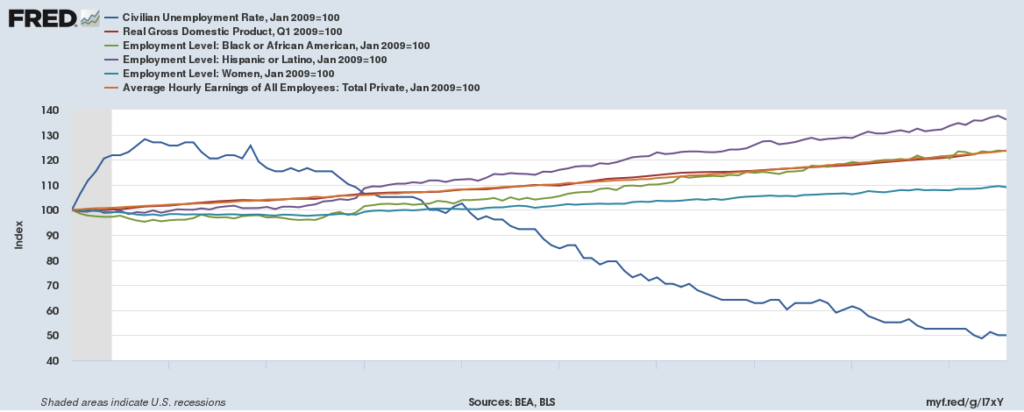by Tony Wikrent
Economics Action Group, North Carolina Democratic Party Progressive Caucus
Simulcasting The Second International Conference of Modern Monetary Theory (#mmtconf18), Friday-Sunday, Sept 28-30, The New School, New York City [via Naked Capitalism]
“Judges in Seattle have decided to quash convictions for marijuana possession for anyone prosecuted in the city between 1996 and 2010. City Attorney Pete Homes asked the court to take the step ‘to right the injustices of a drug war that has primarily targeted people of colour.’ Possession of marijuana became legal in the state of Washington in 2012.”
Can the US win a trade war?
By Marshall Auerback, September 22, 2018 [Asia Times, via Naked Capitalism 9-23-18]
The Democratic Party response to Trump's trade war so far has been straight out of an Economics 101 textbook, or a briefing paper by the Council on Foreign Relations. Unfortunately, this response is basically a defense of the economic status quo, which has been disastrous for the living standards of working class Americans.
....the US president is probably right in his implicit assumption that the US, not China, is likely to come out ahead in its steadily intensifying trade conflict with Beijing – at least in the short term, until China can wean itself off its export-led mercantilist growth model.Here I think Auerback is wrong: China has already weaned itself "off its export-led mercantilist growth model." Just look at how far advanced is China's high speed rail system or how aggressive is China's program of building new electric power generating capacity -- which includes coal fired power plants as well as renewables. This is an aspect of national economic development most economists and USA policy makers simply do not understand: at some point in a country's economic development, it is exporting goods not because it is following an "export-led mercantilist growth model" but simply because it has become the producer of the best, most advanced, and/or most cost effective machinery and technology. Alexander Hamilton, the first USA Treasury Secretary, who designed the basic structure of the USA economy, understood this thoroughly. This is the reason South Korea remains, after China, the world's largest shipbuilder, or that Toyota is now a larger car maker than General Motors or Ford.
Trump’s goal is to disrupt this “Chimerica” nexus and induce bringing supply chains back to the US. However, one potentially adverse outcome is that this policy may be inflationary, by creating short-term bottlenecks as the flow of cheap Chinese imports is disrupted. Furthermore, a tariff, like a devaluation, is expansionary as it diverts demand from foreign to home producers, thereby further contributing to potential inflation.
For Trump, this might be a reasonable trade-off. But if the president is successful in securing these objectives, he might well find himself winning a trade battle with China, but losing the inflationary war.





